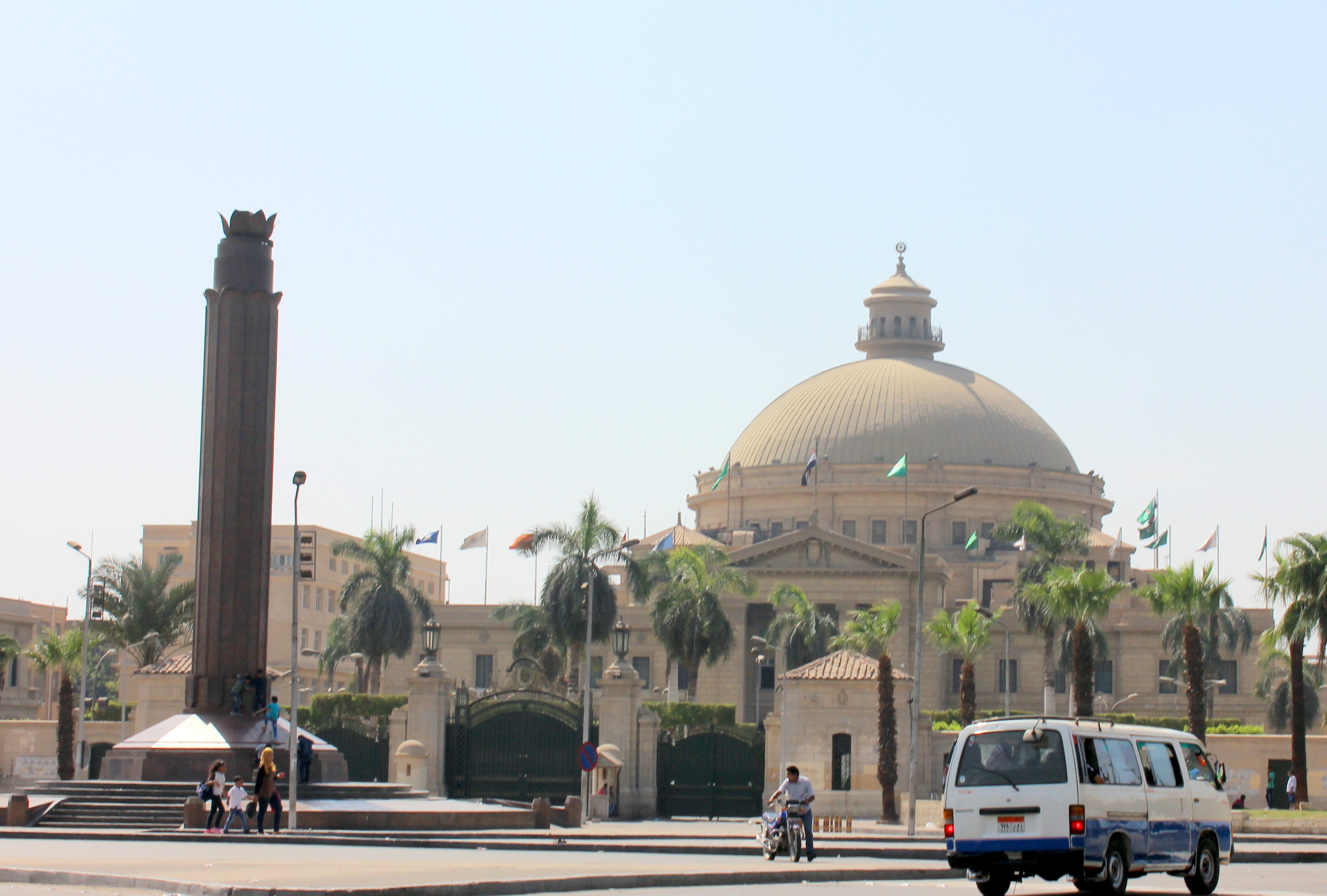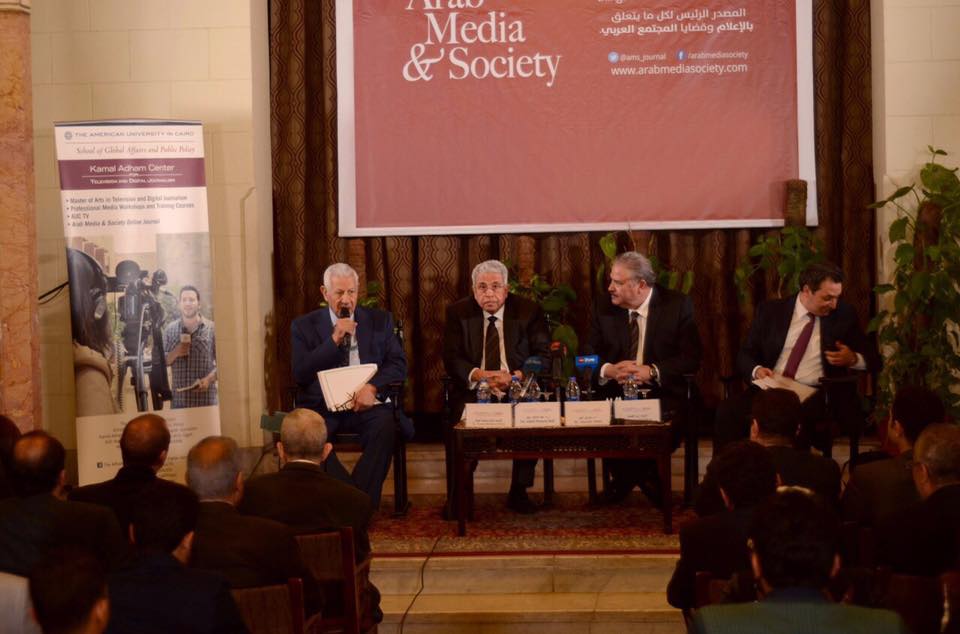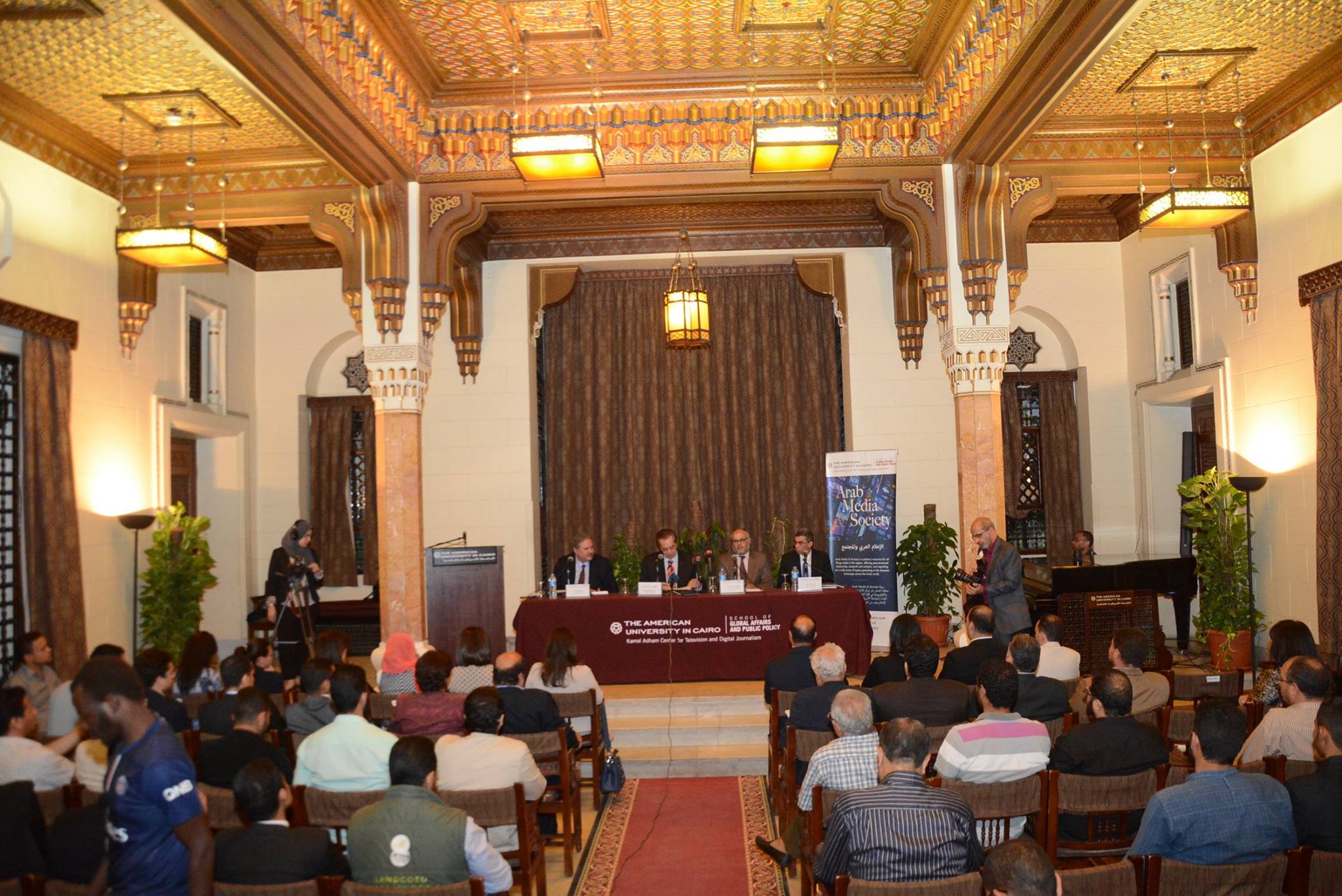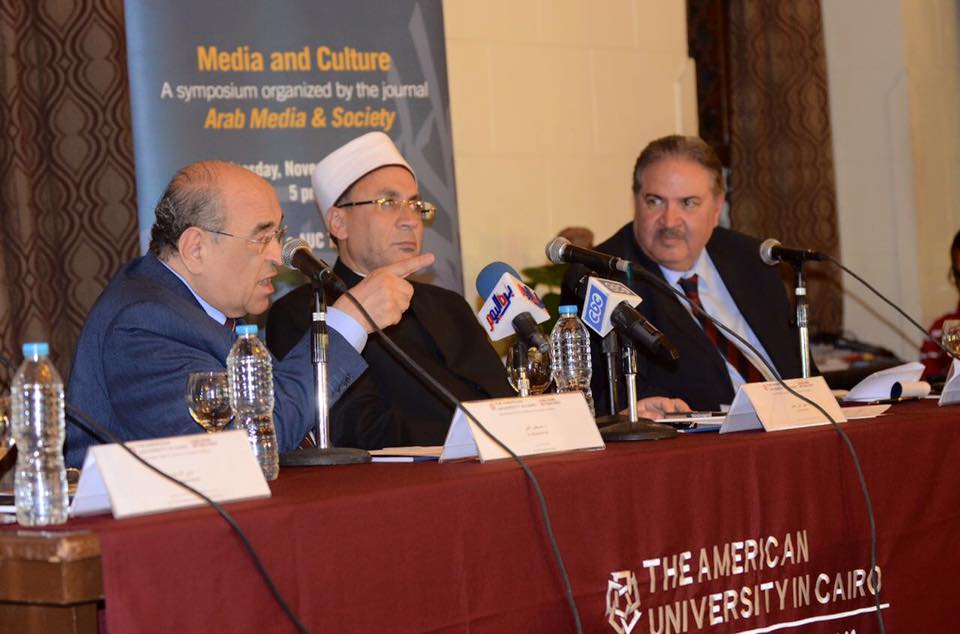House of Lords, London
9 March 2005
Next Steps
The Arab International Media Forum (AIM), held a discussion on this topic in the House of Lords. This addressed how the Arab media cover the issues of freedom, women and economic diversification, building on earlier AIM workshops in Sharjah, which revised the change agenda set out in the UNDP report on Arab Human Development.
AIM is now seeking additional comments that will be reviewed at a workshop as part of the Doha Dialogue at the end of March. We look forward to receiving suggestions as to action and individuals to involve in AIM's subsequent programme.
The following key points arose from the discussion:
Change in the Arab Media
- During the 1991 Gulf war there were no pan-Arab media outlets. During the 2003 Gulf war this had completely changed.
- There has been little congruence between the concept of the 'global village' and the regional Arab media - this is a challenge for the planned English language Al Jazeera.
- Al Jazeera has set the agenda for other Arab satellite stations.
- This new media is a pragmatic means of offering debate.
- Arab media has provided an alternative to Western media to both the Arab and non-Arab worlds. In the West it has provided an insight to Arab culture and thought.
- Problem of bias - Arab news gets criticised for bias, however all media outlets have a greater or lesser degree of bias - this should be seen in context.
How do the Arab Media Treat Women
- The depiction of women within the Arab media is often distorted
- To what extent is there a need to target a wider audience rather than educated women in the Arab media given the high level of illiteracy.
- Will women journalists make an impact once they become editors.
- Practical outcomes are needed - possibly with training, education and monitoring.
- The primary religious authority on Al Jazeera consistently speaks up for women's rights - stimulating the debate.
How the Arab Media Addresses Freedom:
- The 'stirrings' in the Arab world have been gathering pace for many years. They did not start in 2003 with the Iraq war and US foreign policy in the region. Satellite access has played a part.
- Some Arab media provides a voice for an often disenfranchised Arab world
- Arab rulers are less able to control information leading to greater transparency. This is an important psychological and political break from the past.
- Without a free press, there is little pressure for good governance, the rule of law and related freedoms.
- A number of initiatives are underway to encourage greater debate
Arab Economic Diversification:
- Economics is closely tied to politics.
- Economic diversification is important in creating jobs
- Good governance and transparency goes hand in hand with economic reform.
- The media can advocate economic diversification by stimulating and creating interest in business leaders
Where do we go from here?
AIM will be taking these discussions further in Doha. The intention is to develop practical outcomes. Recommendations from the earlier AIM Sharjah workshops are attached, as are some of the presentations from the House of Lords meeting. Please contact the AIM secretariat with your views and comments to:
George Buchan: info@meconsult.co.uk
Arab-International Media Forum
Freedom: Political/Media/Civil
Sharjah
December 2002
Chairman's Recommendations
Among the problems the Group considered were the need for more dialogue between the Arab and International media, including on the Arab side representatives of the growing element representing political Islam as well as more obviously Western-oriented elites, the prevalence of censorship including informal and self censorship in the Arab states, and the need to defend and protect individuals who were under pressure.
With the reservation expressed by some of the Group that foreign "help" crudely presented could do more harm than good, being interpreted as interference, the Group agreed that useful action might be possible if (as in the case of the UNDP report) it was sensitive and steered so far as possible by Arabs and only in second place by foreigners.
Action could include:
" An annual report drawing together current work on media freedom by various organizations, concentrating on the Arab media and treatment of the Arab region by international media, and supplementing existing work by avoiding reliance on "official" (state guided) institutions.
" Similarly, work to draw together existing programmes of exchange, training, mentoring etc. involving Arab and International media.
" Provision of better source material for working journalists including translation and databases.
" Annual awards or prizes to highlight the work of those promoting debate on freedoms in the Arab media.
WOMEN AND THE MEDIA: RECOMMENDATIONS
" Give direct attention to women education and poverty in the world through government programs and civil society programs which concentrate on developing women skills and abilities to change their life situation.
" Encourage Arab women to speak for themselves, and address their own agenda
" Set up Women's studies department in universities
" Strengthen of research capacity into women's issues
" Establish women research centre in the gulf region
" Study legal + family issues affecting Arab women identify differences between countries.
Concentrate on good practice
" Survey of certain organisations, human resources policy. Are statistics accurate? What positions are women in? How many women in the organisation
" Address image of women in school curriculum and emphasize the teaching of modern family services to both male and female students based on shared family responsibilities
WOMEN AND MEDIA
" Training of journalist on women's rights leading work on women such as
" Coverage of leading work on women issues in the media such as Leila Ahmed's work
" Confronting the stereotyping of women in the media
" Establish women research centre in the Gulf region and networking among existing centres such as Al Rai'da and Noor
" Media to raise awareness of women's legal rights
SUMMARY OF ECONOMIC GROUP DISCUSSIONS
Executive Summary
1) The media has an important role to play in supporting the evolution and development of Arab economies.
2) Challenges facing the media include:
" Lack of access to information
" Limited specialist expertise
" Need for closer links with their Arab colleagues and other international journalists
" Censorship - sometimes self-imposed.
3) The group felt that these challenges could be addressed by building on existing initiatives, providing a central database on such projects and offering support to the media in the following ways.
" Developing a series of specialist workshops to develop the specialised writing and journalistic skills of those covering business and economic development in the Arab world.
" This would include a scenarios workshop on the eve of the IMF meeting in the United Arab Emirates in September 2003 - the first time in the Arab world. This would allow journalists to understand better the business and political issues to be addressed by the meeting and offer business leaders an opportunity to role play the job of the journalist. Other specialist groups would look at areas such as energy, banking, transportation and stock exchanges.
" Creating an Arab Business Editors club supported by a database of awards and work experience programmes across the Arab world to allow various groups and publications to exchange information and best practice.
" Setting up workshops sponsored by multinational companies represented in Arab countries to offer mentoring for young business people and business journalists.
" Developing through the above a set of case studies and benchmarks that would be made available through an internet database available to all as a not for profit service.
The Change Agenda and the Arab Media: Part of the Doha Forum on Democracy and Free Trade
30 March 05
Summary
An AIM workshop on the Arab media formed part of the Doha Forum and addressed the following questions.
1. Are Arabs better informed today?
2. How can the media support the role of women in Arab society?
3. Is the media offering reliable information on economic transformation?
4. Can the media be trusted as an independent and fair source of information?
Key Points
The following points arose out of discussion:
- The flow of information is more balanced - increasingly flowing East to West.
- Economic and social development and open media are closely linked - freedom of expression and liberal laws are therefore important.
- The developing role of women interlocks with the evolution of the media.
- Arab media can be a force for change but face a number of obstacles.
- The Arab media are tackling some of the difficult issues facing the Arab world.
- Satellite and internet have made the media more freely available.
- This improved access may result in greater governmental accountability and transparency.
- Satellite media are challenging the role of traditional fora for information interchange including the mosque.
- Arab satellite media are engaging illiterate people.
- The Arab media can be an element in promoting education.
Problems facing the Arab Media:
- The Arab media's independence have yet to be established within countries where the media have been strictly controlled.
- Arab media in the West have operated as a catalyst for change.
- Commercial media are subject to potential advertising boycotts.
- Private funding of the media offers a broader spectrum of opinion but there is the danger of being used to pursue discrete agendas.
- Arab networks tend to play safe by avoiding difficult social issues or addressing them in debate rather than through drama or documentaries.
- Other problems include independent finance, legal issues related to censorship such as libel and blasphemy, and the dangers facing media workers
 Arab Media & Society The Arab Media Hub
Arab Media & Society The Arab Media Hub




